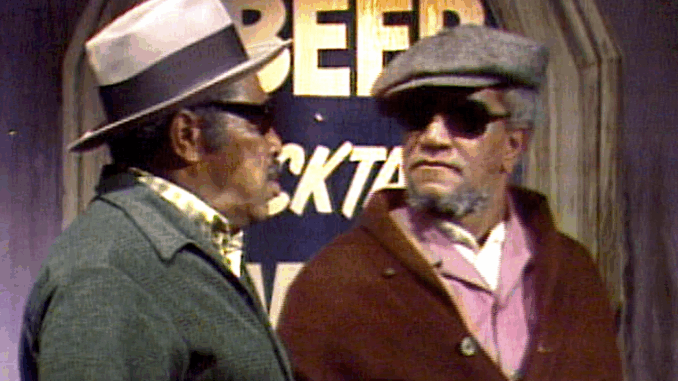
Step into the gritty, endearing world of Watts, Los Angeles, and you’re bound to run into Fred G. Sanford, the cantankerous, junk-dealing patriarch from the iconic 1970s sitcom Sanford and Son. Portrayed with unparalleled genius by the late Redd Foxx, Fred was more than just a character; he was a cultural phenomenon. He was a man of contradictions: a stubborn, penny-pinching, perpetually complaining father who, underneath it all, harbored a deep, if often unexpressed, love for his son, Lamont.
A Masterclass in Misanthropy (with a Twist)
Fred’s default setting was “aggrieved.” Whether he was feigning heart attacks to avoid work, haggling over prices, or sparring with his long-suffering son, Lamont, Fred’s bickering and curmudgeonly charm were his calling cards. He was a master of the backhanded compliment and the exaggerated sigh, always ready with a sarcastic retort or a thinly veiled insult for anyone who crossed his path – especially Lamont, whom he constantly tried to guilt-trip into staying home rather than living his own life.
Yet, despite his gruff exterior, Fred was undeniably human and surprisingly vulnerable. His miserly ways often stemmed from a fear of poverty, a relic of tougher times. His constant nagging at Lamont was, in its own twisted way, a desperate attempt to keep his only son close, a testament to his deep-seated affection. Viewers often caught glimpses of the tender man beneath the grumpy facade, particularly when Lamont faced a genuine crisis, revealing a father who, despite his faults, would always put his son first.
Iconic Lines and a Legendary Performance
Redd Foxx’s portrayal of Fred Sanford was a comedic tour de force. His unique acting style — a blend of impeccable timing, exaggerated facial expressions, and a voice that could convey exasperation and warmth in equal measure — made Fred unforgettable. He didn’t just deliver lines; he embodied them.
And speaking of lines, Fred Sanford gifted television with some of its most immortal catchphrases. His dramatic declaration, often accompanied by a hand clutching his chest, “This is the big one, Elizabeth! I’m coming to join ya, honey!” (referencing his deceased wife) became a pop culture staple, instantly recognizable even today. These moments of feigned demise, always designed to manipulate Lamont, showcased Foxx’s comedic brilliance and Fred’s endearing, if devious, personality. Beyond the catchphrases, his witty comebacks and often improvised banter cemented his status as a comedic icon.
Fred Sanford transcended mere entertainment to become both a comedic and social icon. He represented a segment of the Black working class in America, offering a relatable, albeit exaggerated, portrayal of family dynamics, financial struggles, and the enduring power of love. His humor tackled everyday frustrations with a sharp wit, making him a beloved figure who resonated deeply with audiences across demographics. Fred proved that even the most cantankerous old men could be lovable, and that true affection often lies beneath layers of sarcasm and stubbornness.
